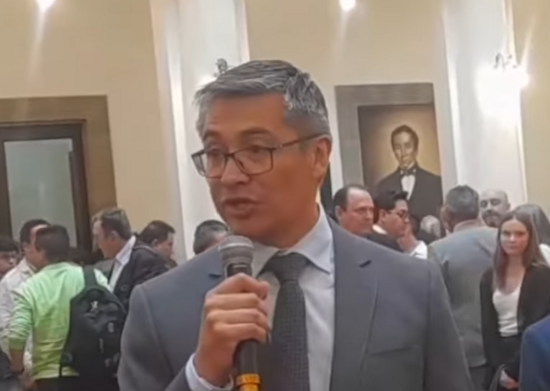As announced by Economy Minister José Gabriel Espinoza, Bolivia plans to integrate cryptocurrencies into its formal banking system, starting with stablecoins. The official added that banks will be allowed to offer digital asset services such as savings accounts, credit cards and loans.
“Digital assets will serve as a means of fiat payment within the financial system,” Espinoza said in an interview. “We need to be aware of cryptocurrencies and use them to our advantage because they cannot be controlled globally,” he stressed.
Presentation by Jose Gabriel Espinosa Full integration of cryptocurrencies and stablecoins into banking systems National Magazine revealed that the new government of Rodrigo Paz Pereira, which was inaugurated on November 8, 2025, is maintaining and further deepening the opening that began with the lifting of the alcohol ban in 2024 under the Luis Arce administration.
As reported by CriptoNoticias, the previous government lifted the blanket ban on Bitcoin and cryptocurrencies in June 2024, establishing Bolivia as one of the South American countries most open to digital assets in the midst of an economic crisis.
In his first statement since assuming command, the Bolivian government announced a complete change in the country’s monetary policy. Minister Espinosa and Bolivia’s new Central Bank President David Espinosa announced parts of the plan. First, the immediate relief of foreign exchange reserves, and now the formal integration of cryptocurrencies and stablecoins into banking operations.
The urgency of these measures is in response to the inherited crisis; Inflation reached 23%, parallel dollar reached all-time high Before the recent downward revision, it was 16.50 Boliviano. As the minimum wage slumps, citizens have found a lifeline in Bitcoin and USDT, but the government is now seeking to institutionalize this trend under a regulatory framework inspired by the El Salvadoran model.
In any case, private banking will start providing services using crypto assets from 2024, so this digitalization initiative will not start from scratch. A pioneering case is that of Banco Bisa, the country’s fourth-largest financial institution, which enabled the storage, purchase, and sale of Tether (USDT) through its “CriptoBisa” service.
Now, with the new measures announced by the Minister, The Financial System Authority (ASFI) plans to publish standards The final integration of banking services and cryptocurrencies is expected in the coming weeks, while the Ministry of Economy is working on a new fiscal law (budget) to reflect the new realities of austerity, transparency and digital openness.
(Tag Translation) Bitcoin (BTC)


